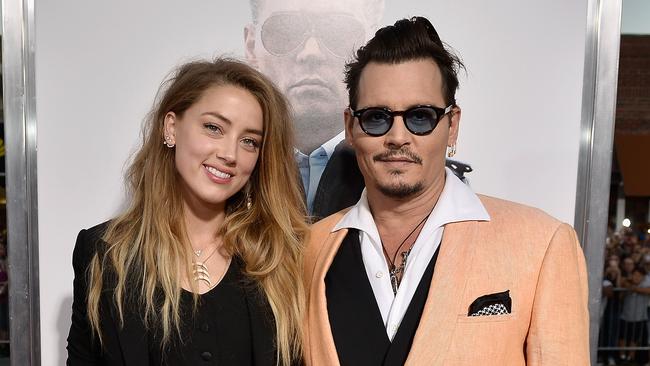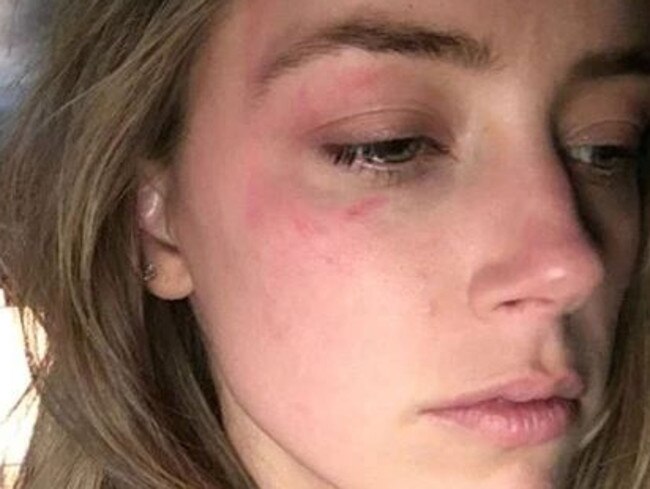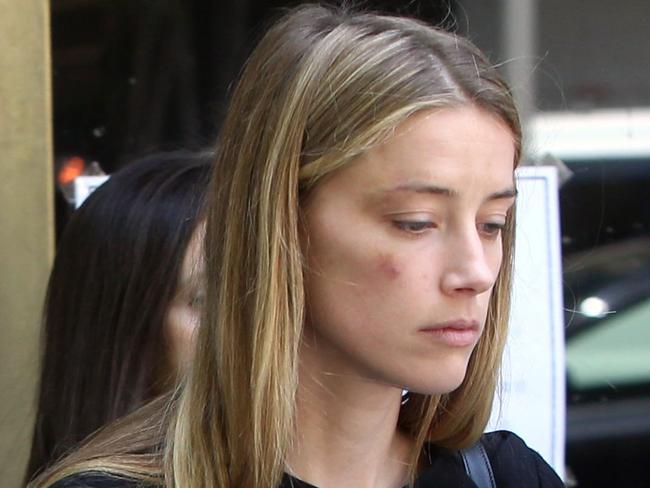Domestic violence experts explain how the Johnny Depp and Amber Heard saga could affect victims
EVER since Amber Heard accused Johnny Depp of domestic violence, the truth of her claims has been called into question.

IN THE week since Amber Heard accused Johnny Depp of domestic violence amid a bitter divorce battle, and pictures of her battered face made front page news around the world, the truth of her claims have been called into question.
Depp’s lawyer, both of his ex-wives, his daughter and his bodyguard say the “sensitive and loving” 52-year-old could never do something so “outrageous”. Their implication is that Heard, 30, fabricated the story to “secure a premature financial resolution” to the couple’s divorce.
This is despite Heard’s repeated claims that she “endured excessive emotional, verbal and physical abuse from Johnny, which has included angry, hostile, humiliating and threatening assaults to me whenever I questioned his authority or disagreed with him...He is often paranoid and his temper is exceptionally scary for me,” she alleged in court documents.

But the questions persist: Why didn’t she immediately file a police report after he allegedly hit her with a cellphone? Why did she go public two days after Depp’s mother died? If both Depp’s exes have defended him, she must be lying, right? Why was she photographed smiling last weekend?
In a statement on Wednesday, Heard’s lawyers criticised the “vicious false and malicious allegations” made against their client.
“Amber is simply a victim of domestic violence, and none of her actions are motivated by money,” the statement read.
“In domestic violence cases, it is not unusual for the perpetrator’s playbook to include miscasting the victim as the villain.
“In reality, Amber acted no differently than many victims of domestic violence, who think first of the harm that might come to the abuser, rather than the abuse they have already suffered.
“Amber can no longer endure the relentless attacks and outright lies launched against her character in the Court of Public Opinion since the tragic events of May 21st.”

Domestic violence victims and advocates say this narrative — of Heard as the crazed lover and Depp as the innocent bystander — is damaging.
Rachel Kayrooz suffered years of physical and psychological abuse at the hands of her former partner. At one point when she was pregnant with her daughter, she was beaten and left in a cupboard to die.
Now she’s the founder and CEO of Shout! Speak Out, a non-profit organisation for women and child survivors of domestic violence.
By portraying Heard as unstable, the media encourages victims to remain silent, Ms Kayrooz says.
“The media’s approach to domestic violence can ultimately save a life or destroy it,” she told news.com.au.
“Perpetrators are manipulative and often create empathy among their peers by calling their victims ‘psycho’ and other damaging, degrading terms. This message empowers the perpetrator to feel they can justify their behaviour.
“We need to hold perpetrators accountable, not blame the victim or call them names. If a victim reaches out for support, it is imperative that we believe them, support them, and refer them to police,” she said.

CEO of domestic violence crisis service DV Connect Diane Mangan says many victims don’t come forward because they’re scared no one will believe them.
“We know now that a high proportion of women who experience domestic violence would never tell the authorities, because he’s someone that would be more believable,” Ms Mangan said.
“A lot of women think their partner presents better than she does, often because he’s too highly connected.”
Ms Mangan says one positive to come out of the huge amount of publicity Heard’s case has received is it contradicts the widely-held view that domestic violence primarily affects people of a low socio-economic status.
“Unfortunately some people still believe that violence only happens to particular people. This case certainly opens up that conversation to say ‘You’re not alone and there is an opportunity for you to come forward’.”
If you or anyone you know is a victim of domestic violence please contact 1800 RESPECT, or visit their website 1800respect. Call 000 if you are in immediate danger.



